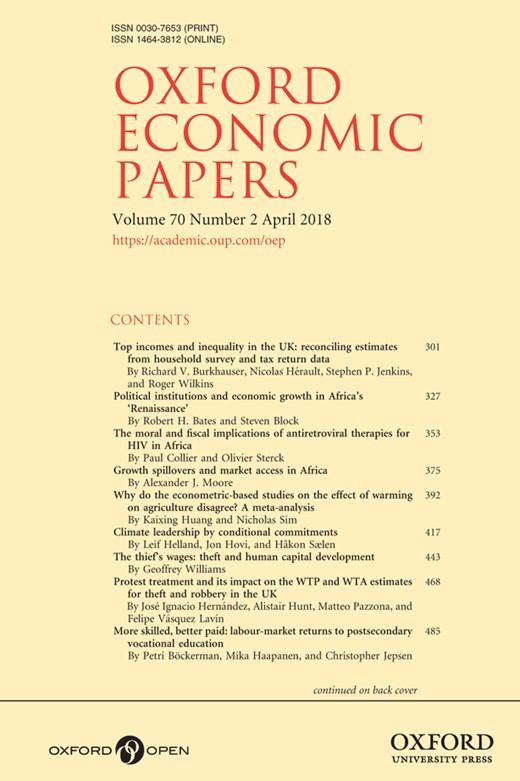-
Views
-
Cite
Cite
Sonja C Kassenboehmer, Felix Leung, Stefanie Schurer, University education and non-cognitive skill development, Oxford Economic Papers, Volume 70, Issue 2, April 2018, Pages 538–562, https://doi.org/10.1093/oep/gpy002
Close - Share Icon Share
Abstract
We examine the effect of university education on students’ non-cognitive skills (NCS) using high-quality Australian longitudinal data. To isolate the skill-building effects of tertiary education, we follow the education decisions and NCS—proxied by the Big Five personality traits—of 575 adolescents over eight years. Estimating a standard skill production function, we demonstrate a robust positive relationship between university education and extraversion, and agreeableness for students from disadvantaged backgrounds. The effects are likely to operate through exposure to university life rather than through degree-specific curricula or university-specific teaching quality. As extraversion and agreeableness are associated with socially beneficial behaviours, we propose that university education may have important non-market returns.



